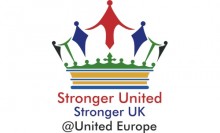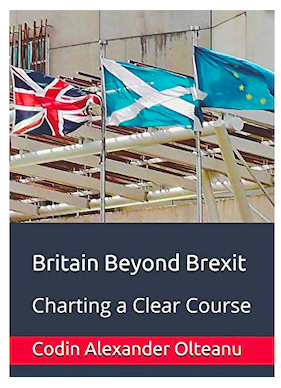Ethnic minority voters - most of them originating either directly or through their families from Commonwealth countries in the developing world - have historically had an ambiguous relationship with regards to our membership in the European Union. On the one hand European human rights and equality legislation as well as workers’ protection rights regulations have helped them to better integrate into British society and increased their quality o life. On the other, particularly with post-1989 enlargement waves that have included former East European countries in the EU, our ethnic minorities have also faced increasing pressures on their living wages from cheaper labor competition as well as sharp increases in cost of living expenses such as rent. At the same time many of them resent the freedom of movement of European citizens that allows Germans, Spaniards, Poles or Romanians to come and settle the UK and bring in their spouses even if they originate from outside the EU - whilst much stricter immigration rules apply to the UK’s ethnic minorities’ own non-EU families and spouses.
They resent these processes as de facto discrimination based on their non-European origins and are angered by the fact that countries today members of the Commonwealth and former parts of the British Empire whose contributions have formed the foundation of Britain's emergence as a global power in the 19th century and whose populations then helped defend the UK’s freedom and independence at the hour of its greatest need in two World Wars against a Germany-led coalition now have significantly fewer mobility rights and rights to bring in their own spouses or families to Britain then do Britain’s former battlefield enemies.
For example, 80 “patriotic Britons of Commonwealth backgrounds” have recently written to Prime Minister David Cameron calling for Britain to take back control of the open EU borders in favour of other countries. The letter claims that under the current arrangement, “…the descendants of the men who volunteered to fight for Britain in two world wars must stand aside in favour of people with no connection to the United Kingdom.” Whilst this letter and the group it originated with in no way represent Britain’s ethnic communities, similar feelings of anger and alienation are widespread – and this not only among lower income members, but also among young professionals who consider to have been affected by institutionalised discrimination and racism in their chosen fields because of their ethnic background.
The UKIP has seized on this growing feeling of alienation on the part of ethnic minority voters and has began to exploit it in order to rally them to vote against Britain's continuing membership in the EU. For example UKIP MP Steven Woolfe is actively campaigning on television shows and other media channels, making a strong case for ethnic minorities to support the ‘leave’ the EU option by stoking their anger and resentment against fellow European citizens who according to Mr. Woolfe receive undeserved preference and put at risk the jobs and livelihoods of ethnic minorities long-established in Britain and with much closer political, economic, cultural, and historic ties to Britain than recently-arrived EU citizens from the newer EU member states.
This blatant attempt on the part of UKIP to stoke ethnic and racial divisions in Britain between UK citizens with Commonwealth origins members of Britain's ethnic minorities and predominantly EU citizens of Caucasian origin choosing to work and live in Britain represents a cynical and dangerous ploy on its part that is certain to backfire and endanger Britain's social cohesion and even its internal peace and security. It is critically important for supporters of the ‘stay in’ the EU option not to allow the UKIP to monopolize their attention and to radicalize Britain's ethnic minorities against the European Union and its non-UK EU citizens. Pro-EU groups must therefore make particularly concerted efforts to contact ethnic minorities across the country, involve them in the political process of debates, discussions, and arguments about our common future in the EU, and explain to them both how they will benefit from continued UK membership in the Europe an Union and how their legitimate complaints of discrimination and treatment as second-class citizens will be addressed fairly, comprehensively, and rapidly following the Brexit referendum.

